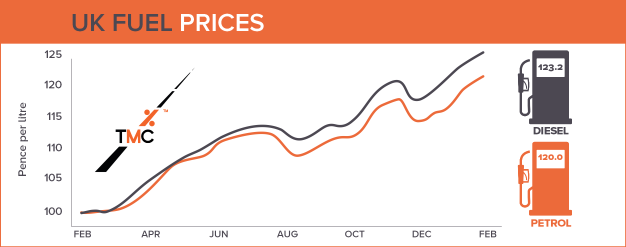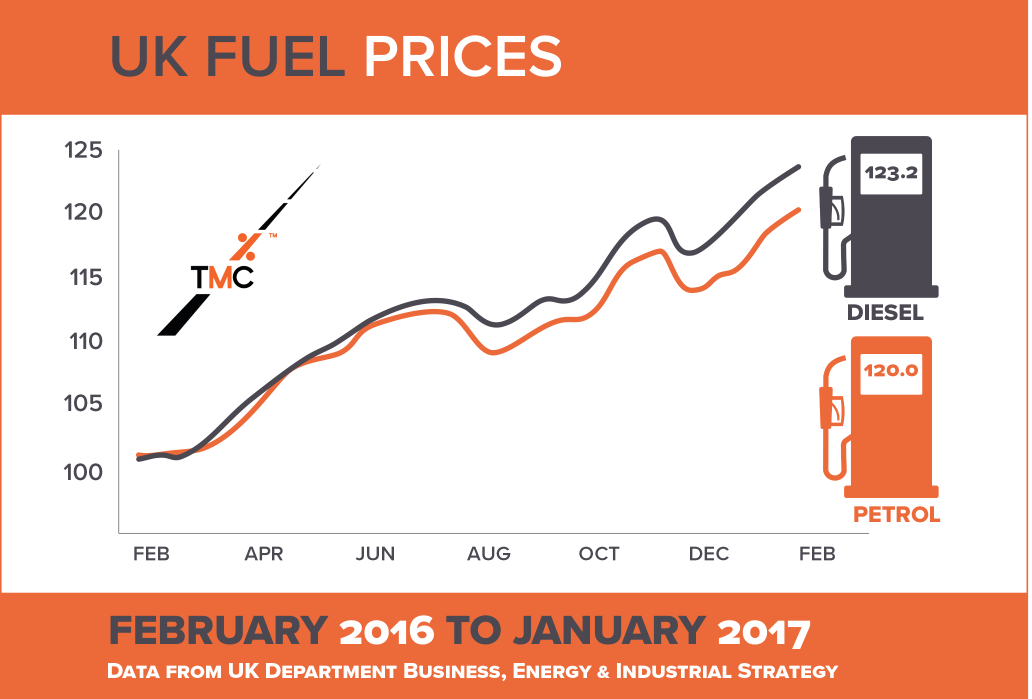Pump prices hit a two-year high in January, according to the RAC. Does it mean that fleets are once again at the mercy of the international oil markets? Not necessarily.
Our client Danwood Group cut its fuel bill by 13.8% in just 12 weeks, last year, by implementing TMC’s complete fuel and mileage solution.
It goes to show that, although unpredictable movements in pump prices movements are inescapable, fleets can minimise their impact on the fuel budget.
Three ‘P’s
- Process
- Payments
- Policy.
Tackling these areas successfully will deliver savings of up to 20% in the total cost of fuelling your vehicles and reimbursing employees for mileage.
Cumbersome expenses processes eat up administrative man hours as well allowing excessive claims to slip though.
Leading on from process problems, companies’ payments to employees are often significantly wide of the mark. The main reasons are inaccurate, missing or late mileage claims. Unrealistic pence-per-mile rates often compound the problem.
Thirdly, fleet policies can lead to excessive fuel costs if they’re not sufficiently informed by real-world data. For example, the official mpg and CO2 figures used by many leasing companies to calculate Total Cost of Operation are almost 30% too optimistic these days.
In the 21st century, there’s no need for companies to carry on overpaying for fleet fuel by 15%-20%. There are proven ways to accurately get hold of to your fleet’s mileage, real life mpgs and fuel transaction costs.
With this information, you gain control and can implement a number of strategies to prevent paying excessive fuel costs and, despite rising pump prices, save money.
Chart: Pump prices on the climb



